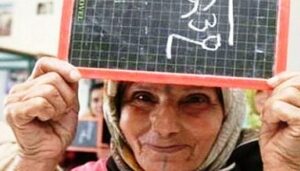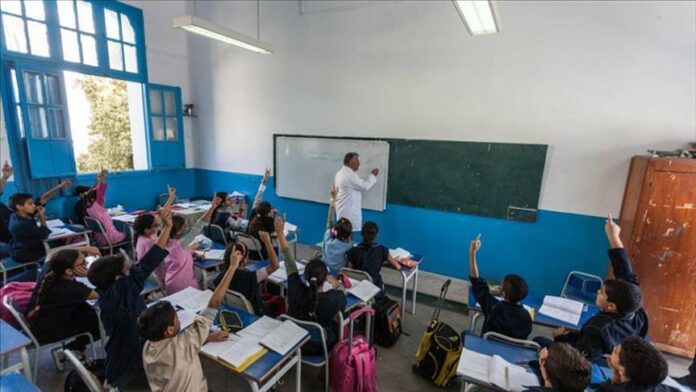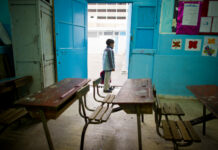May 13, 2021

Hundreds of elderly people stand daily in front of the regional vaccination centers that have been allocated by the Ministry of Health for the vaccination campaign against the Corona epidemic, bewildered before signs that they are unable to decipher because they were deprived of schooling decades ago.
Despite the policy pursued by the “nation-state” since independence, the number of illiteracy has risen alarmingly in recent years, with disparities between different regions.
The Numbers Speak…
The latest figures from the National Institute of Statistics, released in the last quarter of 2020, revealed that the illiteracy rate for females and males in the municipal sector reached 12.9%, but its rate rises alarmingly in the non-municipal sector, reaching 29.5%.
According to the same statistics, the illiteracy rate decreases as the average age decreases, reaching 2.8 per cent among groups aged between 10 and 14 years, while it rises to 79.8 per cent for the elderly (80 years and over).
In 2018, the state of Jendouba topped the list of states with the highest illiteracy rate (31.6 percent), followed by Kasserine with 30.2 percent, and Siliana with 29.7 percent.
On the other hand, the states of Ben Arous witnessed the lowest rate of illiteracy, reaching 9.7 percent, followed by the governorate of Tunis, 10.1 percent, and the state of Monastir, with 10.5 percent.
To reduce these numbers, the state has established what is called the National Program for Adult Education, but it annually attracts only 21,000 beneficiaries, while 100,000 students annually drop out of school.
The number of adult education and literacy centers is 950, and lessons are provided by 1,200 teachers.
Political will
Sociology professor Mohamed Jalal Al-Tlili explains that this leap in the rates of illiteracy in Tunisia is due to the absence of the legislative and legal framework that regulates adult education programs, making it an area with unclear limits and capabilities, in addition to the weak support and funds allocated to it.

He added that the absence of education in the programs of successive governments and their laxity in resolving the file, in addition to the period of former President Zine El Abidine Ben Ali, during which the authority went to cover up the true rate of illiteracy and not publish the numbers as it would see in this a detriment to Tunisia’s image abroad, which could have led to a decrease in the support of International organizations in this field. Such an inferior view affected the development of the program, he said.











